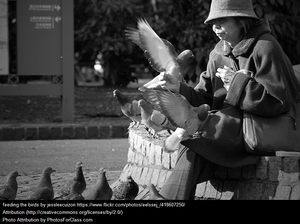Rage. Despair. Terror. These are some of the strong negative emotions we may find ourselves experiencing after discovery/disclosure of our husband's betrayal or sex addiction.
These emotions are a normal part of the journey for a betrayed wife who has been traumatized by either discovery/disclosure, or by longstanding (and possibly ongoing) patterns of lying, emotional abuse, withdrawl, neglect, sexual or physical abuse, etc. In the research I conducted as part of writing Beyond Betrayal, 88% of the nearly 700 participants said they had experienced anger or rage. Others spoke of fears and/or deep grief.
However, the good news is that connection with God and others can keep us from getting "stuck" in negative emotions that begin to control our lives. This week I'm focussing on what therapists refer to as co-regulation (someone helping us to come out of the emotions) and next week, I'll look at those cases where we are going to need to self-regulate (spoiler: God can still meet us there and help us regulate).
Meeting in the pain
Coming to understand our marriage relationship isn't what we thought it was, is a bit like arriving home from the grocery store to find our house a pile of ashes. It brings us face-to-face with an enormous loss. Loss of one of our most important relationships (as we knew it) results in deep grief. Grief may be expressed as sadness—with many tears—or it may turn outward and be expressed as anger or rage. For many of us, we can experience both of these in the same day... even the same hour.
My takeaway from watching this video interview of Kitty Wilder, one of the Life Model Works experts, is that in moments of anger, what we (ideally) need is:
- Someone to validate that we have experienced injustice and loss
- Someone to validate our need to protect ourselves from further harm
- Someone to meet us in our anger and match its intensity (this is called "synchronicity" and it helps calm our brain's "fight" response).
- Someone to meet our eyes with a look that shows they "get it' and it makes them furious too
As regards having someone meet the intensity of our anger, this could include yelling with us (certainly raising their voice in indignation) and helping us find an appropriate physical release for our adrenaline. More on this next week.
What we don't want is:
- Someone telling us our anger is inappropriate, ungodly, etc.
- Someone telling us to "get a grip" or "calm down"
When someone has met us face-to-face in our place of anger, our brain can often regulate enough to move on from this secondary emotion to the primary emotion behind it, sadness.
Kitty also tells us that in moments of profound sadness, what we (ideally) need is someone to:
- Come to us and meet us in that place
- Be with us and cry with us
- Connect with us physically (hug, hold us, squeeze our hand)
- Make the kind of eye contact that shows compassion, so that we know they are with us and “for” us
- Listen to us... if we want to talk
We may also need someone to be willing to do the jobs we don't have the energy to do at the moment.
However, what we don't want in these moments is:
- To be asked to do anything – our energy levels go way down
- People preaching at us or trying to “fix” it—read the book of Job for more on this.
With these criteria met, our brains are able to move us from grief back to rest (i.e., peace or joy).
Who do we turn to?
While I'd love it if every husband were able to be there for his wife when she is in the throes of anger or sadness, the reality is most are not capable of this. Reasons include lack of maturity (addiction freezes the maturation process), lack of empathy, and their own struggles with shame.
The fact that our husband—who might have been there for us in the past—is NOT here for us now, in our worst pain, just adds to our distress. That's not to say that he'll never be here. In fact, further down the road in his recovery he should be actively working on being able to meet us in our pain!
However, at least for now, we are most likely going to have to turn to friends and family. Other options are well-regulated support group members, or our coach or counselor.
Next week I'll look more at how to deal with our intense emotions when we are alone... as well as giving a word of caution about trying to regulate through social media.
Music also has the ability to regulate us, particularly when it links us back to the Prince of Peace and the truth of his presence with us.


